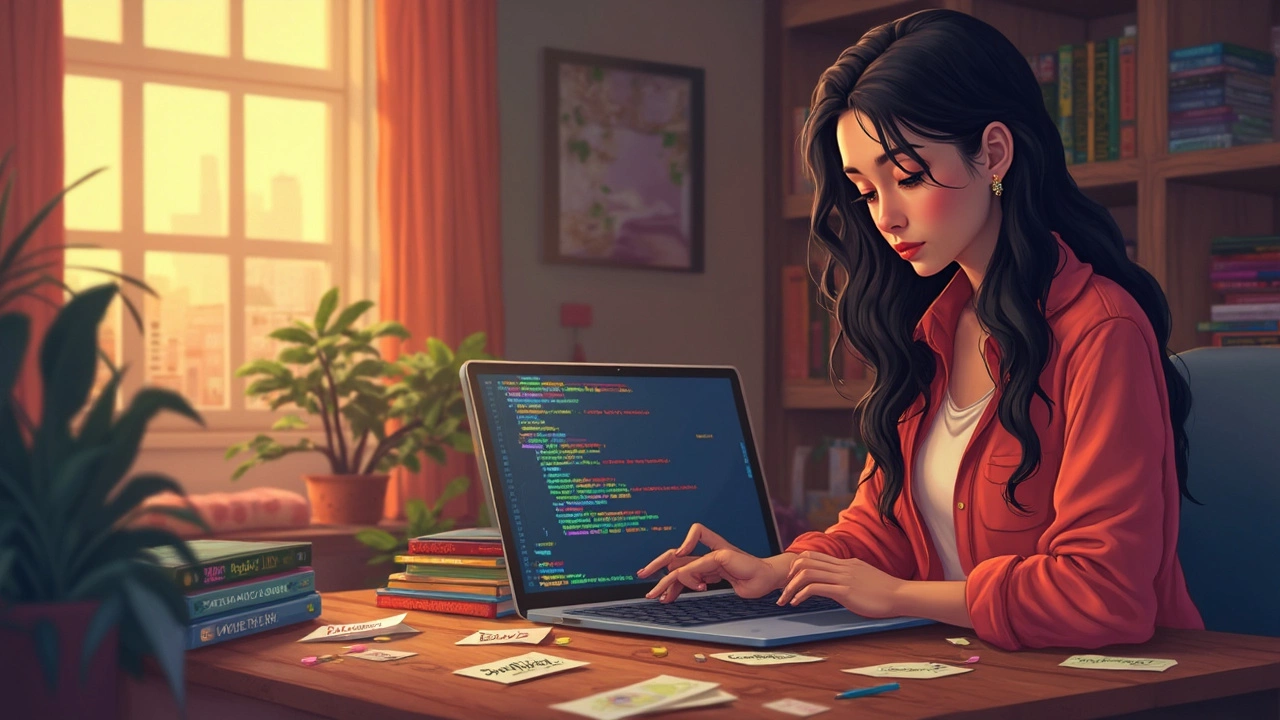Programming Languages: What They Are and How to Pick the Right One
Ever wondered why everyone keeps talking about Python, Java, or JavaScript? Those are programming languages – the tools we use to tell computers what to do. Just like spoken languages let us communicate with each other, programming languages let us communicate with machines. The good news? You don’t need a PhD to start; a bit of curiosity and the right guidance are enough.
Why Learn a Programming Language?
First off, learning to code opens doors. It’s not just for future software engineers; marketers use Python for data, designers use JavaScript for interactive sites, and doctors use R for research. Knowing a language gives you a practical way to solve problems, automate boring tasks, and boost your resume.
Second, coding builds a mindset. When you break a problem into steps, you train yourself to think logically and creatively at the same time. That skill translates to everyday life – from planning a trip to managing finances.
Top Languages and How to Choose
There’s a sea of options, but a few stand out for beginners:
- Python – Simple syntax, huge community, great for data, AI, web apps.
- JavaScript – Runs in every browser, essential for web development, instantly visible results.
- Java – Strong for large‑scale apps, Android development, and companies that value stability.
- C++ – Fast, powerful, perfect for games, embedded systems, and performance‑critical software.
- Ruby – Friendly, readable, popular for rapid web development with Rails.
So, which one fits you? Ask yourself three questions:
- What do you want to build? Web sites? Mobile apps? Data analysis?
- How quickly do you want to see results? Python and JavaScript give instant feedback.
- Where do you see yourself working? Companies often list preferred languages in job ads.
If you’re aiming for a quick win and love visual projects, start with JavaScript. Want to dive into AI or data science? Python is the go‑to. Planning to build Android apps? Java or Kotlin (a Java‑compatible language) makes sense.
Don’t overthink it. Pick one, stick with it for a few weeks, and build a tiny project – a calculator, a to‑do list, or a simple game. That hands‑on practice beats endless reading.
Another tip: use free resources. Websites like Codecademy, freeCodeCamp, and YouTube tutorials let you learn at your own pace. Pair programming with a friend or joining a local coding meetup can keep you motivated and answer questions fast.
Finally, remember the learning curve flattens after the first month. The hardest part is getting started. Once you write a few lines, the syntax starts to feel natural, and you’ll spot patterns across languages – the same logic, just different words.
In short, programming languages are tools, not mysteries. Choose the one that matches your goal, build something real, and keep experimenting. Before you know it, you’ll be speaking code fluently and opening doors you didn’t even see before.
Which Code to Learn First? A Clear Guide to Starting Your Coding Journey
Not sure which programming language to learn first? This article breaks down the real-world uses of popular coding languages, matches them to everyday goals, and helps you sidestep common beginner mistakes. You'll get straight-up advice—no jargon—on picking your first language, whether you're curious about web apps, gaming, or even just automating boring stuff. Find out what actually matters when choosing where to start, and see what works best for different learning styles. This guide will save you time, effort, and a few headaches on your way to learning your first programming language.
read moreWhat's the Hardest Coding Language? A Real-World Look
Ever wondered which programming language is the toughest to master? This article cuts through the noise and looks at what really makes some languages harder than others. Get the dirt on tricky syntax, mind-bending concepts, and stories from folks who’ve tangled with the gnarliest code out there. If you’re thinking of picking a language to learn, you’ll want these facts and tips before you start. Grab some honest advice on what to expect and how to survive the ride, whether you’re a newbie or looking for your next challenge.
read more
